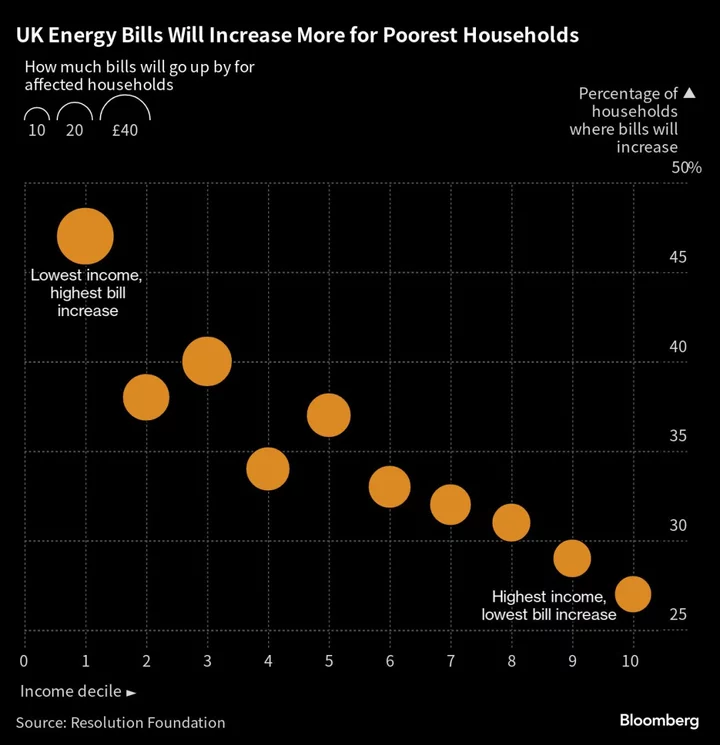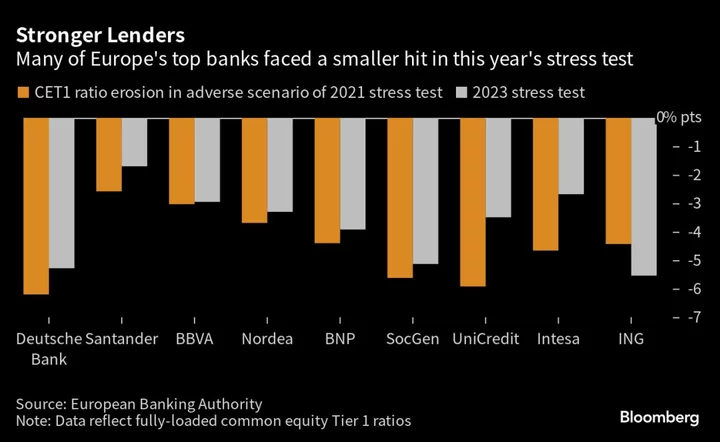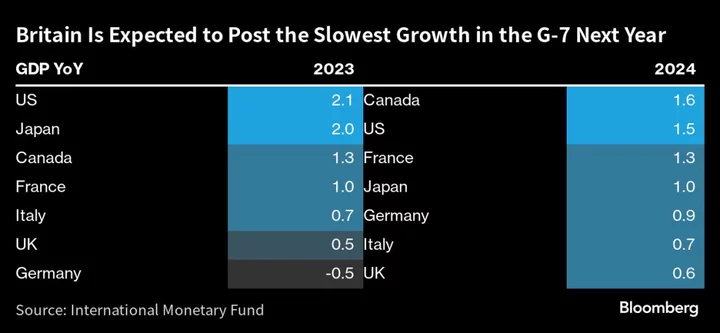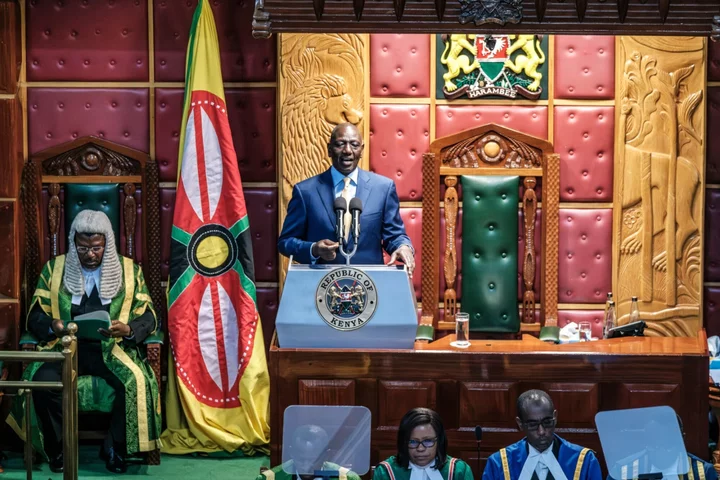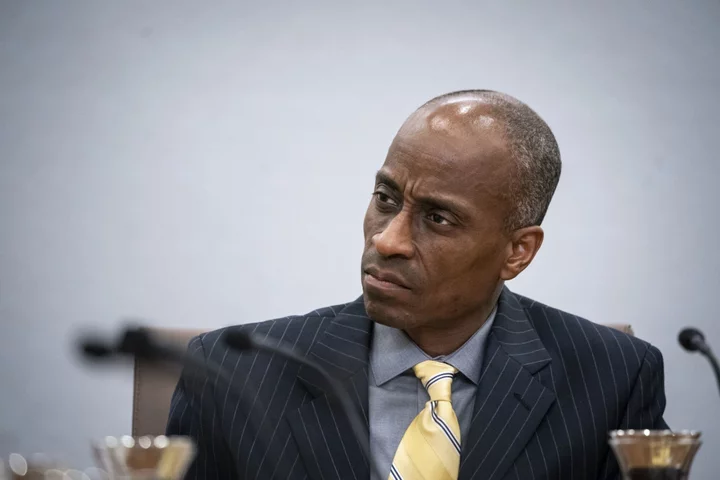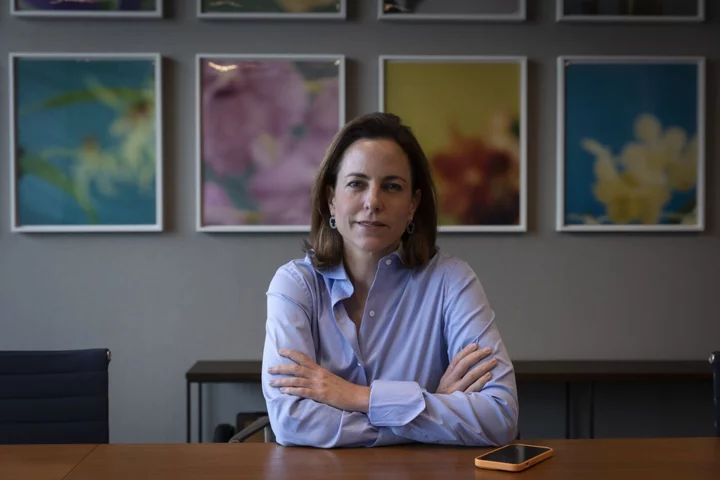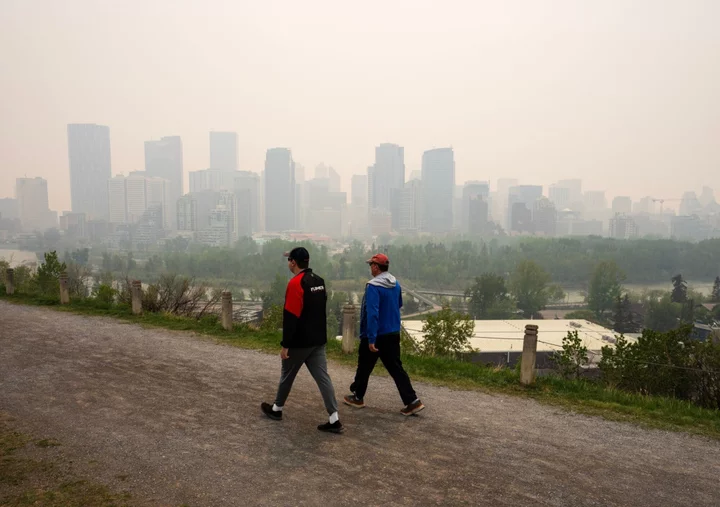The UK’s energy price cap drops from Sunday but almost half of the lowest income households will see their bills increase.
Although the cap level will be 7.3% lower, the phase-out of government support means households will pay more. On top of that, standing charges - fixed costs added on top of bills to cover being connected to the grid - are higher than last year. Plans for tackling Britain’s cost of living crisis are likely to feature at the Conservative party conference this week.
The heaviest energy-using households are set to benefit most from the lower unit price for electricity and gas, while some households who use relatively little will see bills rise this winter compared to last year. A family with an energy consumption less than four-fifths of the average will see higher bills this winter, a situation that applies to around one-in-three households in England and close to half of those in the lowest income bracket, according to a report by the Resolution Foundation.
Against the backdrop of the fight to win a general election next year, is inflation. Although it’s easing from the highest level in decades, the measure remains stubbornly elevated, prompting expectations that central bank rates will have to stay raised for longer to fight it. So far, the government has ignored calls from energy suppliers and lawmakers to set up a state-funded social tariff to help poorer households this winter.
Standing charges are up 55% since April 2021, according to supplier EDF Energy. The firm said the number of its customers in debt on their energy bills has surged by 36% this year.
“With almost three million households set to see their bills rise by over £100, the cost of living squeeze is far from over, especially for England’s poorest households who are most likely to struggle with these persistently high costs,” Senior Economist Jonathan Marshall at Resolution Foundation said.
The national price cap will drop to £1,923 for the last three months of the 2023, from £2,074 previously. The pricing mechanism, set on a quarterly basis, limits how much suppliers can charge per unit of energy. This is the first time average energy bills will fall below £2,000 a year since April 2022, however they remain almost double pre-crisis levels.
In January, the cap is estimated to rise by 3.5% due to higher wholesale prices, according to Cornwall Insight Group
There are 6.6 million homes in fuel poverty and £2.3 billion owed by UK households who are behind on their energy bills, up more than 70% over the past three years, according to fuel poverty campaigners and charities.
“We can expect millions of people in low-income and vulnerable households to suffer many more years living in a cold home, rationing energy, and struggling to cook a hot meal,” charities including Citizen’s Advice said in a letter to the energy secretary Claire Coutinho last week. “As families fall behind on bills, they will be faced with the double whammy of facing high costs and trying to drag their way out of energy debt.”

